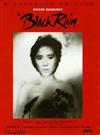|
|
||||
|
|
by Donald Levit  The mixed reception, and the reasons advanced for it, of The Wind Rises indicates that Japan has not been fully forgiven so much or survived its own psychoses so well as its erstwhile white Axis partners. Similar controversy a quarter century ago dogged another masterwork from another of that country’s internationally prized filmmakers, Black Rain/Kuroi ame. Co-adapted by its New Wave director from a diary- and interview-based novel, this last of a lamentably abbreviated only five features in Asia Society’s free “Vengeance Is Mine: Shohei Imamura” is atypical in not occurring among his usual social underbelly of outcasts, whores, pimps, slumlords, fringe and porn actors, killers, con artists, drug and sex addicts. About normal citizens, one small family standing for many, it won awards as well as censure in presenting the catastrophic dislocation of August 6, 1945, and subsequent suffering. Imamura was caught off guard by the ambush of criticism for the picturing of those caught in “the rain of ruin from the air.” Shigematsu Shizuma (Kazuo Kitamura) is not sarcastic, as some have it, in his Ciceronian-Franklinesque plea that even “an unjust peace is better that a just war,” for the drift throughout is the horror of war, which among other things had claimed the director’s eldest soldier-brother. The arbitrariness of the unthinkable is openly questioned -- “Why Hiroshima? -- but not answered. Nagasaki is not brought up, but that second city’s bad luck had been sealed simply by a change of date and by the winds that blew firebomb smoke over another, primary target. A rumored color epilogue was edited out, so in unprettied black-and-white 35mm the two-hours-three-minutes is the Human figures charred solid or oozing melted flesh litter ruined buildings and waterways. This butcher shop had to be included but is not dwelt on in visceral special effects and makeup as one might expect. Instead, Shizuma stumbles across town with wife Shigeko (Etsuko Ichihara), his aged mother, and his late sister’s daughter Yasuko (Yoshiko Tanaka). His cheek is burned, and, though away from the center, the niece has been splattered by gobs of radiation fallout “black rain” (also the same-year title of an American cops-yakuza actioner). In the village in which they and some survivor friends have settled, life seems normal in the spring of five years later. But the past stalks them, in physical symptoms and in psychological damage and fears of delayed results from “the Bomb.” The specific issue which stands for many is that of dutiful Yasuko, twenty-five and unmarried. Despite medical certificates of good health and matchmaker efforts of go-between Kotaro (Norihei Miki), prospective suitors drop by, then drop out, they or their parents concerned that the woman and her womb are poisoned. One funeral procession after another, neighbors die off and the lives of those remaining -- and of the nation -- are scarred. They live under a cloud, post-traumatic stress disorder and survivor guilt are culprits, one way or another the damage is done, as with local crazy Yuichi (Keisuke Ishida), an ex-soldier who ironically proves to be as sane as and less afraid than others and, too late, the elusive true lover. A concluding hoped-for rainbow does not materialize. “The men who brought the dawn” did not bring miracles. (Released by Angelika Films; not rated by MPAA.) |
||
|
© 2025 - ReelTalk Movie Reviews Website designed by Dot Pitch Studios, LLC |



